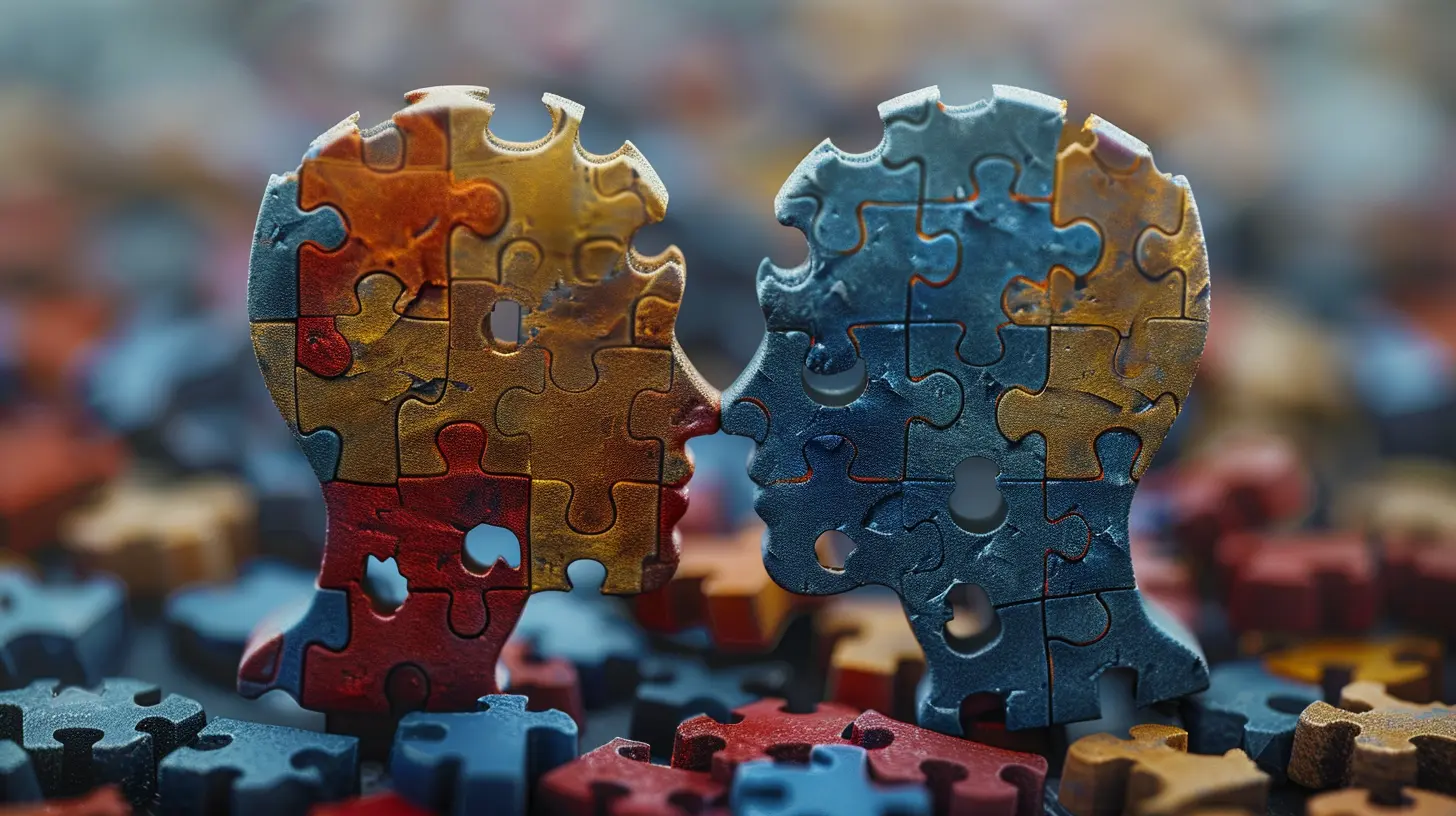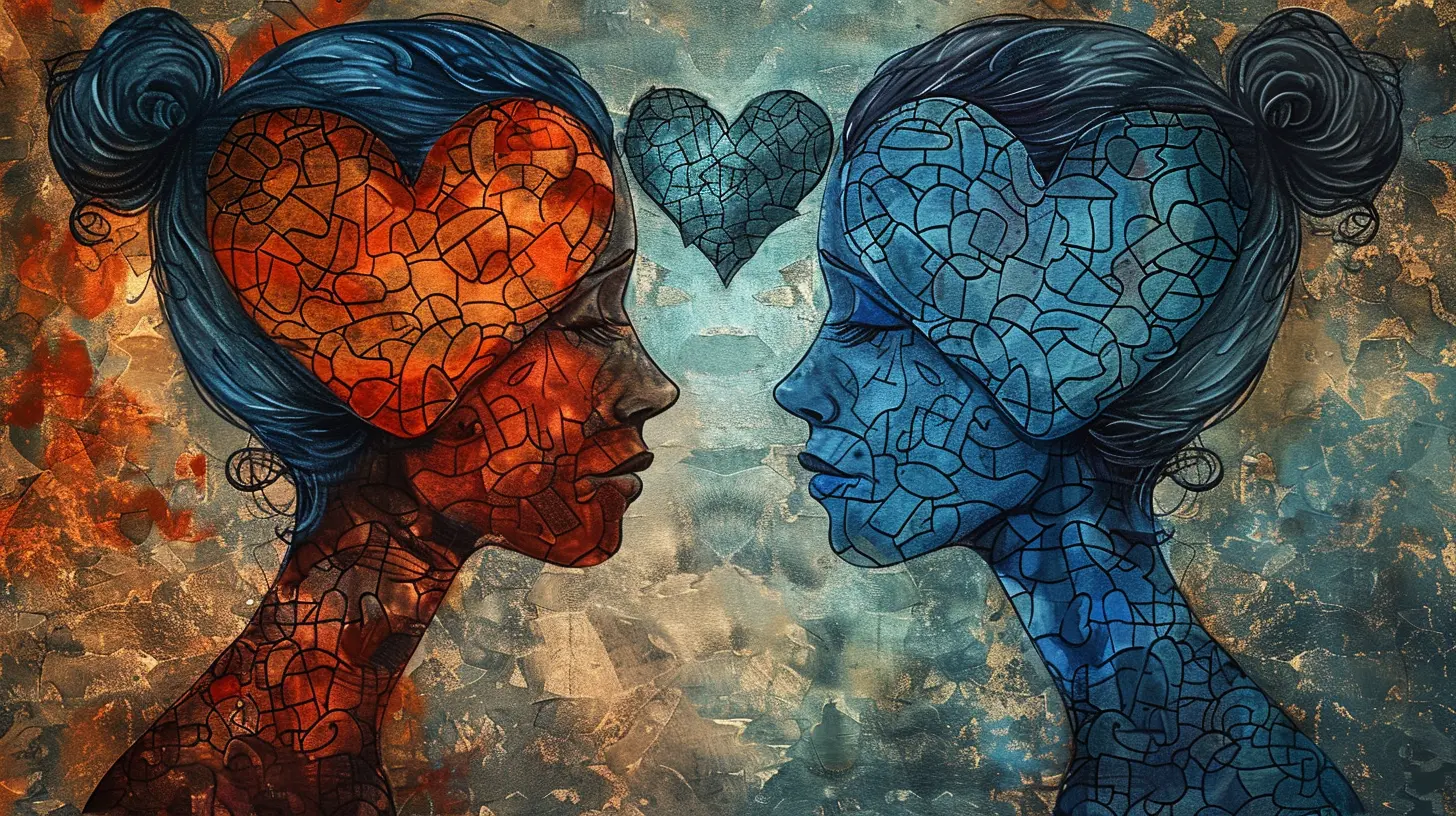Mental Health and Relationships: How to Foster Healthy Connections
25 July 2025
Relationships are a huge part of our lives. Whether it's with a partner, family member, friend, or colleague, our interactions with others can deeply affect our mental well-being. When our relationships are healthy, they provide support, happiness, and security. But when they’re strained or toxic, they can lead to stress, anxiety, and emotional exhaustion.
So, how do we ensure we build and maintain healthy connections while taking care of our mental health? Let’s dive in.

Why Mental Health and Relationships Are Connected
Mental health and relationships go hand in hand. When our mental health is in a good place, we communicate better, handle conflicts more effectively, and create stronger bonds. On the flip side, when we’re struggling with anxiety, depression, or stress, it can impact our ability to connect with others.Think about it—ever had a bad day where you just didn’t feel like talking to anyone? Or found yourself snapping at someone for no real reason? That’s your mental health influencing your relationships.
At the same time, unhealthy relationships can take a toll on your mental well-being. Constant criticism, lack of support, or toxic interactions can make anxiety and depression worse. That’s why it’s so important to nurture both your mental health and your connections with others.

9 Ways to Foster Healthy Relationships While Protecting Your Mental Health
1. Practice Open and Honest Communication
Communication is the backbone of any strong relationship. Without it, misunderstandings and frustrations build up.- Express your feelings honestly but respectfully.
- Listen actively—focus on understanding, not just responding.
- Be open to feedback without getting defensive.
Healthy communication isn’t just about talking—it’s about truly hearing each other.
2. Set and Respect Boundaries
Boundaries are like personal fences—they protect your emotional space while allowing healthy interactions.- Know your limits and communicate them clearly.
- Don’t feel guilty for saying “no” when needed.
- Respect other people’s boundaries as well.
Setting boundaries doesn’t mean shutting people out; it means ensuring relationships are built on mutual respect.
3. Prioritize Self-Care
You can’t pour from an empty cup. Taking care of yourself isn’t selfish—it’s necessary.- Get enough sleep, eat well, and stay active.
- Take mental breaks when you feel overwhelmed.
- Engage in activities that bring you joy and relaxation.
When you prioritize your well-being, you show up as a better version of yourself in all your relationships.
4. Recognize Toxic Relationships
Not all relationships are worth saving. Some can drain you emotionally and negatively impact your mental health. Signs of a toxic relationship include:- Constant criticism or belittling
- Manipulation or gaslighting
- Feeling drained and anxious after interactions
If a relationship is consistently harmful, it may be time to walk away or set firmer boundaries.
5. Manage Conflict in a Healthy Way
Disagreements happen—it’s how you handle them that matters.- Stay calm and avoid yelling or blaming.
- Focus on the issue at hand, not past mistakes.
- Seek compromise rather than trying to “win” the argument.
Conflict doesn’t have to mean the end of a relationship. When handled maturely, it can actually strengthen bonds.
6. Show Appreciation and Gratitude
People love feeling valued. A simple “thank you” or a kind gesture can go a long way in maintaining positive relationships.- Acknowledge others’ efforts and kindness.
- Express gratitude for the little things.
- Avoid taking people for granted.
Appreciation keeps relationships warm and meaningful.
7. Surround Yourself with Positive Influences
The people you spend the most time with can impact your mental health. Choose relationships that uplift and support you.- Seek friends and partners who encourage your growth.
- Limit exposure to negativity when possible.
- Cultivate a support system of caring and understanding people.
Positive relationships can boost your confidence and emotional resilience.
8. Be Present and Engaged
In a world of constant distractions, being fully present in your relationships is a game-changer.- Put away your phone when spending time with loved ones.
- Engage in meaningful conversations instead of surface-level chatter.
- Show genuine interest in what others have to say.
Being present strengthens connections and deepens emotional bonds.
9. Seek Professional Help if Needed
Sometimes, relationships and mental health struggles require outside support—and that’s okay!- Therapy or counseling can provide valuable insights into relationship dynamics.
- Support groups can connect you with others facing similar challenges.
- Couples therapy can help partners navigate issues together.
Seeking help doesn’t mean failure—it means you’re taking proactive steps for growth.

The Role of Self-Love in Building Strong Relationships
Before you can have a healthy relationship with others, you need a healthy relationship with yourself. Self-love isn’t about being selfish; it’s about recognizing your worth.- Treat yourself with kindness and compassion.
- Accept your flaws while working on self-improvement.
- Avoid seeking validation solely from external relationships.
When you love and value yourself, you’ll attract relationships that reflect that same respect and care.

Final Thoughts
Healthy relationships are like well-tended gardens—they require effort, patience, and care. By prioritizing communication, boundaries, self-care, and positive influences, you can create meaningful connections that uplift both you and those around you.Remember, relationships should bring joy, not constant stress. If a connection consistently drains you, it might be time to reevaluate its place in your life. Your mental health always comes first.
all images in this post were generated using AI tools
Category:
Mental Health AwarenessAuthor:

Eliana Burton
Discussion
rate this article
1 comments
Zelda Kirkpatrick
This article provides valuable insights into the interplay between mental health and relationships. It emphasizes the importance of communication, empathy, and self-awareness in fostering healthy connections. By understanding and addressing individual mental health needs, we can enhance our relationships and create a supportive environment for both partners to thrive.
August 16, 2025 at 2:32 PM

Eliana Burton
Thank you for your thoughtful comment! I'm glad you found the insights on communication and empathy valuable for fostering healthy relationships.


